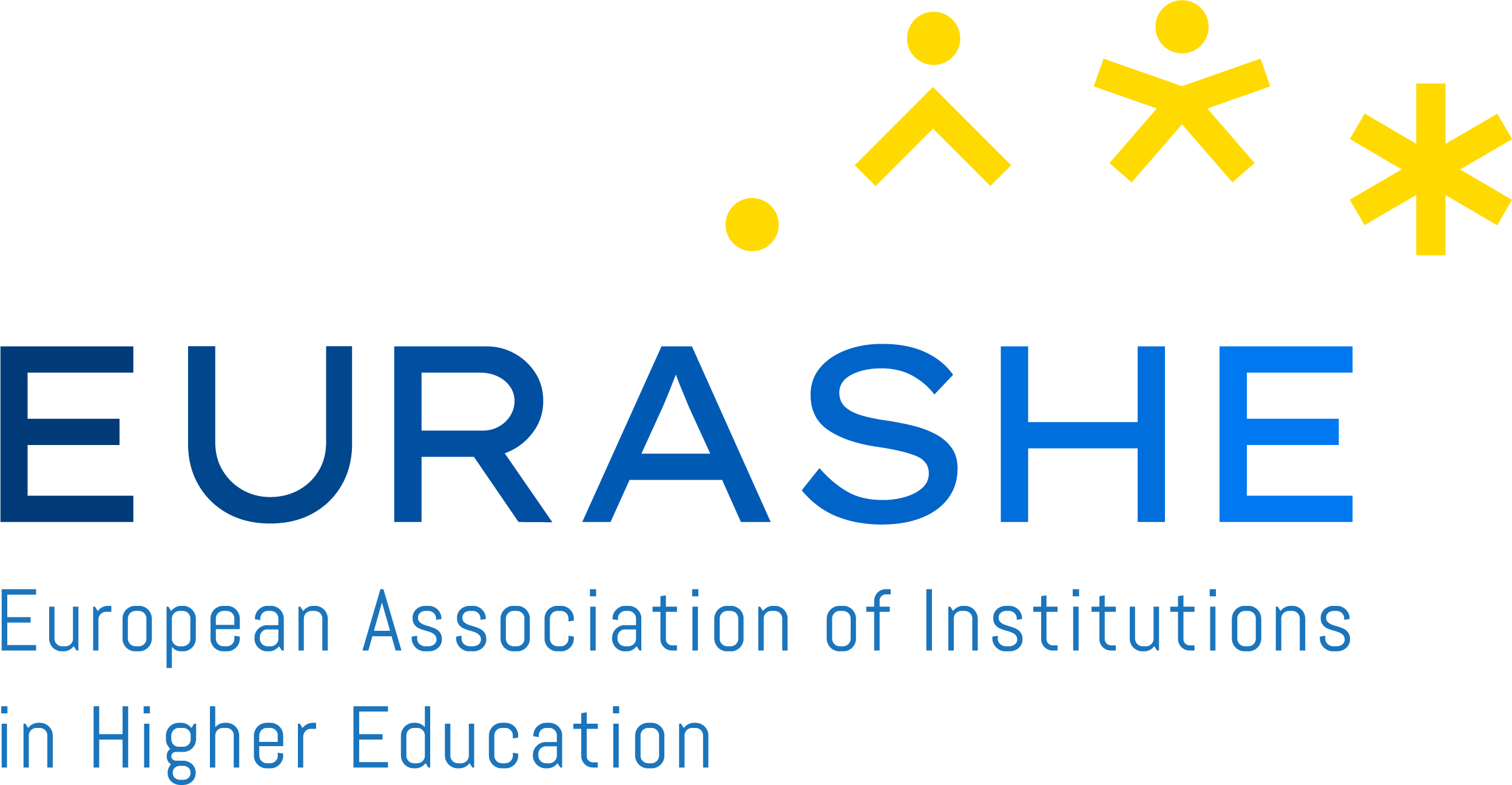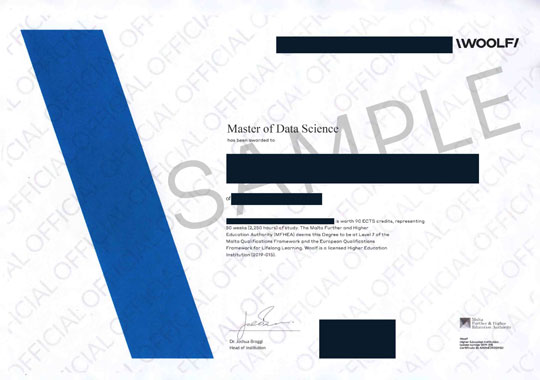
Master of Data Science


- Duration
14 Months
- Modules
11 Modules
- Assignments
4 Assignments
- Format
Blended Learning
- Projects
3 Projects
- Level
Intermediate
Globally Recognized & Accredited:






Students Trained Globally
Industry-Aligned Programs
Countries with Active Alumni
Career Transition Success
- Industry-Standard Technology Stack
Tools & Technologies That Power Success
Master the complete data science ecosystem with hands-on experience using industry-leading tools and frameworks. Our Advanced Program in Data Science equips you with practical skills in Python programming, data manipulation, visualization, and machine learning – preparing you for real-world data challenges.
- Production-Ready Skills
- Industry-Relevant Tools
- Hands-On Learning
Python

MySQL

Anaconda

Jupyter Hub
Pandas
NumPy
Seaborn
Matplotlib
Excel
GIT
HTML

CSS
- Industry-Standard Technology Stack
Tools & Technologies That Power Success
Master the complete data science ecosystem with hands-on experience using industry-leading tools and frameworks. Our Advanced Program in Data Science equips you with practical skills in Python programming, data manipulation, visualization, and machine learning – preparing you for real-world data challenges.
- Production-Ready Skills
- Industry-Relevant Tools
- Hands-On Learning
Python

MySQL

Anaconda

Jupyter Hub

R Project
NumPy
Keras

Tableau
Excel

Flask

TensorFlow

Power BI
Woolf-Certified Master’s Program
Woolf University has partnered with Airtics Education to deliver globally accredited Master’s programs tailored for the modern digital economy. Designed with a strong focus on real-world application, these programs combine academic excellence with industry relevance.
Learners gain hands-on experience using cutting-edge tools while being mentored by faculty from leading academic and industry backgrounds. Airtics’ advanced courses are officially certified by Woolf, ensuring global recognition and academic quality.

Eligibility
Prerequisites
Applicants should have a basic understanding of mathematics and logical reasoning. Familiarity with programming or tools like Excel, SQL, or Python will be helpful, though not mandatory.
Course Modules
Exploratory Data Analysis & Management
This module introduces learners to the critical first steps of data analysis: assessing data quality, performing descriptive statistics, and visualizing information using graphs and charts. It builds a solid foundation for advanced analytics by teaching students how to perform exploratory data analysis (EDA). Learners are introduced to R and Python programming, the most widely used languages in data science, and they gain hands-on experience with SQL for data management and preprocessing. The module also explores how to integrate SQL with Python and R tools, preparing students to clean, manage, and structure data for machine learning workflows.
Database Management Systems
This module covers the fundamentals of database design, creation, and administration. Topics include relational and NoSQL databases, normalization, SQL operations, and database security. Learners gain practical skills in database development, including backup and recovery, indexing, performance tuning, and access control. By understanding how to create efficient, secure, and scalable databases, students are prepared to support AI and machine learning systems with robust data infrastructure.
Statistical Inference
This module develops students’ foundational knowledge of linear algebra, calculus, logic, and probability. Topics include vectors, matrices, transformations, recursion, induction, formal logic, and probability theory. Students learn to apply mathematical tools to analyze data, build and evaluate models, and optimize algorithms. They also develop logical reasoning and the ability to construct clear mathematical arguments—skills that are vital for AI, data science, and algorithm design.
Fundamentals of Programming
This course teaches programming as a tool for solving real-world problems. Students learn Python from the ground up, mastering variables, expressions, functions, loops, and data structures like lists, dictionaries, and tuples. As they progress, they apply their skills to develop complex programs and web applications using the Flask framework. The course emphasizes algorithmic thinking, abstraction, and collaboration through team-based projects, code reviews, and presentations.
Data Visualization
This module introduces learners to principles of effective visual communication using tools such as Tableau and Power BI. Students explore statistical graphics, design principles, and perception to turn raw data into actionable insights. They learn to prepare data for visualization, filter and link visuals interactively, and build dashboards that support real-world decision-making using structured and unstructured data.


Learning Outcomes
By completing this module, you will:
- Assess, analyse, and criticise various strategies for handling data analysis
Compare and evaluate methodologies from scholarly sources
Propose appropriate solutions to complex and evolving data challenges
- Identify types of database management systems such as relational and NoSQL
- Describe key components of a DBMS, including tables, indexes, and relationships
Explain and apply database normalization to design optimized structures
- Think logically and mathematically in preparation for advanced algorithmic study
Demonstrate creativity in applying algebraic operations to programming
- Perform programming functions through knowledge of algebra and logic
- Manage projects using programming as a problem-solving method
- Write complex Python programs using core data structures and algorithms
- Develop solutions for evolving technical challenges using loops, functions, and iterations
- Understand analytical tools used for extracting insights from datasets
- Transform and filter data before analysis
- Design interactive dashboards using real-world datasets and tools like Tableau and Power BI
Data Mining
This section focuses on the process of extracting useful information from large datasets to enable informed decision-making. Learners explore key data mining techniques such as data preprocessing, pattern discovery, and identifying trends within information systems. The module teaches how to apply integration, cleansing, selection, and transformation of data using tables and graphs for knowledge discovery. Through Python and its matrix libraries, learners conduct tasks like classification, estimation, segmentation, forecasting, sequence modeling, and data association. Students also explore data exploration, clustering, association rule mining, and real-world applications of data mining to derive actionable insights.
Data Analytics in Business Process
This segment addresses building reliable spreadsheet models and transforming conceptual models into mathematical representations. Learners explore spreadsheet auditing, Excel analytic tools, and decision-making frameworks such as payoff tables and decision trees. In parallel, the module introduces Microsoft Power BI for advanced analytics, teaching students to build dashboards, apply predictive tools, and use data visualization and Data Analysis Expressions (DAX) to solve real business problems.
Data Science Case Analysis
This module allows learners to integrate and apply their learning in a practical project. Students choose a domain-specific dataset and perform data cleaning, exploratory data analysis, visualization, and predictive modeling. They apply statistical techniques to identify trends and patterns, visualize outcomes using graphs and charts, and develop predictive models using machine learning methods.
Big Data and Its Applications
This module introduces foundational concepts and technologies related to big data. Students examine big data’s definitions, formats, sources, and challenges. They explore how to collect, store, and analyze massive datasets, gaining exposure to relational and NoSQL databases. The “5 Vs” of big data—volume, velocity, variety, veracity, and variability—are studied to address real-time data issues and large-scale processing systems.
Privacy and Ethics in Data Science
This module explores the ethical and privacy concerns involved in data collection, storage, sharing, and analysis. Students learn how to apply ethical frameworks to guide data science projects and balance privacy with utility. Topics include data bias, surveillance, consent, and societal impacts of automation. Learners discuss responsibilities, identify stakeholders, and communicate ethical considerations in data-driven environments.


Learning Outcomes
By completing this module, you will:
- Understand the data mining process for extracting knowledge from large datasets
- Grasp the fundamentals of text mining, pattern identification, and decision support
Implement scalable pattern discovery techniques using transactional data
- Critically analyze the role of business data in organizational decision-making
Understand and apply business analytics within management functions
- Apply appropriate data management and analysis techniques using Excel and Power BI
Assess and evaluate strategies for modeling and visualizing real-world data
- Compare methodologies from academic sources on deploying statistical models
- Propose data-driven solutions to complex business problems
- Analyze strategies for computational analysis of large data volumes
- Evaluate scholarly methods and best practices for managing big data
- Propose solutions to challenges in storing and processing massive datasets
- Identify and discuss key ethical issues like bias, fairness, and privacy
- Understand the social and economic implications of data science applications
- Recognize stakeholder roles and apply ethical decision-making frameworks
Data Mining for Business Insights
Master the core concepts of data mining, including data preparation, pattern discovery, clustering, and classification. Learn how to extract actionable knowledge from massive datasets using real-world tools like Python. Understand the full data mining lifecycle—from cleaning and transforming data to applying models for knowledge discovery.
Machine Learning for Predictive Modeling
Explore the most widely used machine learning algorithms for both classification and regression problems. Learn how to split data into training, validation, and test sets, and use models like neural networks, SVMs, k-NN, and ensemble techniques to solve complex business challenges with accuracy and efficiency.
Natural Language Processing and Text Mining
Dive deep into NLP and its real-world applications. Build powerful language processing pipelines using Python, TensorFlow, and Keras. Develop and deploy advanced models using feed-forward, convolutional, and recurrent neural networks for tasks such as classification, sentiment analysis, and sequence tagging.
Big Data: Concepts and Real-World Applications
Understand the 5 Vs of Big Data—Volume, Variety, Velocity, Veracity, and Variability. Gain practical knowledge in storing, managing, and analyzing massive datasets using relational and non-relational databases. Learn to harness the power of big data to drive real-world business solutions.
Privacy, Ethics, and Responsible Data Use
Examine the ethical and societal implications of data science. Learn to apply ethical frameworks, manage privacy risks, and identify the responsibilities of different stakeholders. Explore real-life dilemmas in data collection, sharing, and analysis, and develop strategies for responsible data practices.


Learning Outcomes
By completing this module, you will:
- Understand and apply data mining techniques to uncover insights from complex datasets
- Build and evaluate machine learning models for business applications
- Utilize natural language processing to analyze text data and automate language-based tasks
- Analyze, manage, and interpret Big Data using modern frameworks and architectures
- Recognize and address privacy concerns and ethical issues in data handling
- Apply the skills to solve real-world analytical problems in various industries
Data Mining and Pattern Discovery
Gain a comprehensive foundation in data mining and its real-world applications. Learn to extract knowledge from large datasets through processes like cleansing, integration, clustering, classification, and association rule mining. Explore Python-based implementations for text mining using matrix libraries, with practical cases like segmentation, estimation, and forecasting.
Machine Learning Foundations for NLP
Delve into essential machine learning algorithms such as decision trees, k-NN, SVMs, neural networks, and ensemble models. Understand how to split data for training and validation, apply performance metrics, and use predictive models to solve regression and classification problems in complex NLP applications.
Text Mining and Deep NLP Models
This segment introduces deep learning approaches to text data using TensorFlow and Keras. Learn to preprocess and vectorize text, and implement cutting-edge NLP models like BERT and Transformers. Apply CNNs, RNNs, and feed-forward networks to solve language-specific tasks such as utterance classification and sequence tagging.
Big Data Technologies in NLP
Understand how big data intersects with NLP by exploring its types, formats, and analytical challenges. Learn to manage vast datasets using relational and non-relational databases, and apply the five Vs—Volume, Velocity, Variety, Variability, and Veracity—to scalable language data processing.
Ethics and Privacy in Data Science
Learn to navigate the ethical complexities of working with language data. Apply ethical frameworks, evaluate privacy risks, and consider the societal impact of NLP systems. Examine real-world case studies involving fairness, data bias, and stakeholder responsibility.


Learning Outcomes
By completing this module, you will:
- Understand and apply key data mining techniques for large-scale text analysis
- Develop skills in machine learning algorithms for classification, regression, and forecasting
- Build and train deep learning models for NLP using modern tools like BERT and TensorFlow
- Process and analyze large volumes of unstructured language data using big data technologies
- Identify ethical challenges and apply privacy-preserving strategies in NLP-driven systems
- Gain hands-on experience with end-to-end NLP workflows using real-world datasets
Data Mining for Pattern Discovery
Explore how to extract meaningful insights from large datasets using techniques such as data integration, cleansing, selection, transformation, and association rule mining. Learn how to apply data mining on tables, graphs, and sequences for forecasting, classification, and clustering.
Machine Learning Algorithms for Prediction
Dive into core machine learning models used in classification and regression—such as SVM, k-NN, decision trees, ensemble methods, and artificial neural networks. Understand how to split data into training, validation, and test sets for performance assessment.
Computer Vision Techniques Using Deep Learning
Build expertise in computer vision using tools like YOLO, CNN, and RNN. Apply deep learning frameworks (TensorFlow, Faster-RCNN-Inception-V2) to develop automated systems for object detection and image classification in real-world scenarios.
Big Data Technologies and Applications
Understand the five V’s of Big Data (Volume, Variety, Velocity, Veracity, Variability) and how to store, manage, and process large-scale data. Learn the difference between relational and non-relational databases and use big data tools to solve practical problems.
Ethics and Privacy in Data Science
Study the ethical frameworks guiding responsible data use. Address issues like bias, fairness, privacy, and data misuse. Gain tools to communicate ethical implications and manage the societal impact of data science solutions.


Learning Outcomes
By completing this module, you will:
- Understand key techniques in data mining and apply them to extract knowledge from large datasets
- Gain hands-on experience in model training, validation, and testing using ML algorithms
- Design computer vision systems using CNNs, YOLO, and other deep learning models
- Analyze and manage large-scale data using Big Data frameworks and tools
- Compare methods of handling high-volume, high-velocity data for real-time decision-making
- Apply ethical reasoning to data science practices and address privacy concerns
- Communicate the social and ethical implications of AI and data-driven systems
- Propose scalable and responsible solutions to complex data problems
Bridging Theory with Real-World Challenges
This capstone module empowers learners to translate theoretical knowledge into practical action by solving a real-world data science problem. Drawing from the entire MSc Data Science curriculum, students engage in solving complex analytical issues in business or social domains.
Customised Problem Solving with Mentorship
Learners select a problem, often from their workplace or area of interest, under guidance from academic and external mentors (subject to approval). They perform detailed research that includes literature reviews, data analysis, hypothesis testing, model building, and developing insights with real-world impact.
Research, Build, and Communicate Solutions
The practicum includes the use of machine learning models, visualization tools, and deliverables like dashboards. A crucial aspect of the project is the ability to effectively communicate findings to both technical and non-technical audiences through reports, presentations, and visual storytelling.


Learning Outcomes
By completing this module, you will:
- Assess, analyse, and critique strategies for real-world data analytics challenges
- Compare and evaluate scholarly methodologies and industry-standard practices
- Formulate and execute actionable solutions for complex, evolving analytics problems
- Conduct literature reviews, hypothesis testing, and build ML-based models
- Develop interactive tools (e.g., dashboards) and deliver insights with clarity and precision
- Communicate research outcomes clearly to diverse audiences, including stakeholders and executives
Your Success Story Starts Here
Every image here tells a story of transformation, dedication, and success. Be the next to wear the cap and gown. Enroll today, and let your journey begin.
What Our Students Say
Every student has a story—of ambition, of challenge, of growth. In their own words, they share how Airtics became a turning point in their learning journey and helped them move closer to their goals.
Pemsith Ravi

- Verified Review
Zeeshan Ali

Airtics offers a truly transformative learning experience. The course content is up-to-date, the mentors are incredibly supportive, and the flexibility of the online platform made it easy to balance with my work. Highly recommended for anyone looking to upskill!
- Verified Review
Aalaa Shbair

The experience at Airtics College has been tremendous for me. It has illuminated my path and opened the way for me to become a developer of solutions in my workplace. I cherish every moment of this online learning experience and the supportive community of instructors and peers.
- Verified Review
Muhammad Fatouh

Airtics offered a great platform that allowed me to take a meaningful step forward in data science while balancing my demanding job as a telecom engineer. If you have a busy schedule and struggle with work-life balance, I encourage you to find a flexible platform like Airtics to pursue your goals.
- Verified Review
Al Tayyab Bakhsh

Coming from a non-technical background in marketing, switching to data science was challenging. The faculty at Airtics was incredibly helpful, especially my mentor Miss Piyali, who guided me with patience every step of the way. Their mentorship gave me the confidence to succeed.
- Verified Review
Dilnawaz Qureshi

Airtics provides an impressive curriculum for Python Full Stack development that is both well-structured and up-to-date. This comprehensive approach ensures we acquire a thorough understanding of the field and are well-prepared for real-world challenges.
- Verified Review
Charuhaas Shenoy

- Verified Review
Madonna Ghanem

- Verified Review
Dhruv Narse

Airtics provides a conducive learning environment for data analytics students. They have experienced faculty, and provide access to the latest software and tools used in the industry. This ensures that we are well-prepared for our future careers in the field.
- Verified Review
Real-World Capstone Projects
Apply your learning through in-depth projects that address real-world business and societal challenges. These capstone experiences allow you to design, develop, and deliver data-driven solutions using the full range of techniques covered in the course—from data management and exploratory analysis to predictive modeling and visualization.
Data Science Case Analysis
Work on domain-specific projects involving data cleaning, analysis, and modeling to uncover insights and solve practical problems.
Applied Data Science Practicum
Investigate a real-world issue, conduct exploratory data analysis and hypothesis testing, and apply advanced modeling to generate actionable recommendations.
Dashboard & Visualization Tasks
Communicate findings to technical and non-technical audiences using visual tools and dashboards developed as part of your project work.
Learn from Industry Leaders & Experts
Learn from the best in the field. Our faculty combines academic brilliance with industry expertise, featuring PhD holders, senior data scientists, and AI researchers from top organizations.
Global Student Community
Students from 60+ Countries Worldwide



























